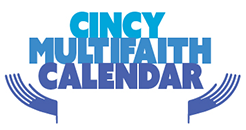At the core of every faith tradition is a reverence for creation. This is a belief that creation is sacred and thus should be honored within the tradition and foundational to their moral vision. In recent years more and more attention has been paid by all of the world’s faith traditions to what that the moral responsibility entails and how faith traditions can play an important role in- confronting the growing climate crisis. This is not only based in the recognition that the climate crisis is an existential threat, it is also a theological imperative.
To help our faith communities better realize this imperative and the resources available to them, Green Umbrella (https://greenumbrella.org/) the regional sustainability alliance of Greater Cincinnati, is providing a new platform for collective, interfaith action.
Green Umbrella, has over 200 member organizations and over 200 individual members who are passionate about enhancing the environmental health and vitality of our region. Their mission is to lead collaboration, incubate ideas and catalyze solutions that create a resilient sustainable region for all. Working together they envision a vibrant community where sustainability is woven into our ways of life. Green Umbrella serves a 10-county region in Ohio, Kentucky and Indiana.
Green Umbrella believes in the power of collective impact. They believe that if citizens, organizations and businesses can find common cause in sustainability, together they can become a powerful force in creating solutions to the growing crisis of climate change. In addition to ongoing projects such as Tristate Trails, The Greater Cincinnati Food Policy Council, Cincinnati 2030 District and the Common Orchard Project, Green Umbrella has created a number of impact teams that work on issues such as energy, transportation, water, green space, etc.
The newest impact team is Faith Communities Go Green. Bringing the faith communities into the Green Umbrella family has been an idea that has been discussed for a number of years but it was the initiative of Joanne Gerson that provided the necessary push to get the new group started. Gerson had previously worked on an environmental initiative within the Jewish community called Shomrei Olam. James Buchanan, the past Director of the Brueggeman Center for Dialogue at Xavier University, who has worked with Green Umbrella for many years on The Midwest Regional Sustainability Summit (https://www.midwestsustainabilitysummit.org/) joined Gerson to co-chair. Within this new impact team there are four working groups focusing on Facilities, Education and Lifestyles, and Advocacy.
The goal is to move beyond an individual congregation or even individual faith traditions working on care for creation and sustainability to create new models of interfaith collaboration. To find ways that all faith communities might work together to support each other in facing the climate crisis. A second, equally important goal, is that by working on issues we have in common, the many diverse regional faith communities might come to know each other better. Faith Communities Go Green believes that the interfaith community can become a powerful moral voice helping transform our region into one that is more vibrant and sustainable.
For more information or to join this new initiative visit
https://greenumbrella.org/faith.
by James P Buchanan, PhD




